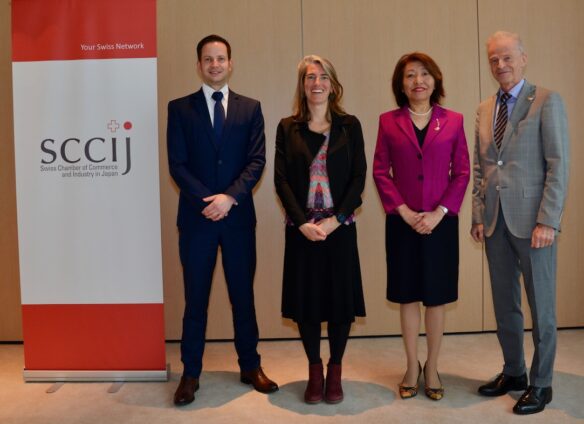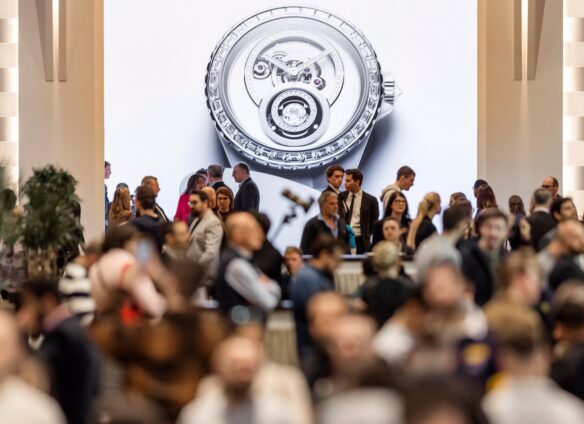Tokyo (SCCIJ) – The “Swissness” legislation which came into force on 1 January 2017 in Switzerland is supposed to strengthen the protection of the “Made in Switzerland” designation. The intention is to preserve its value in the long term and to provide a foundation for an effective fight against wrongful use. The core of the bill establishes precise rules in the Trade Mark Protection Act concerning the conditions under which a product or service may be labelled as being Swiss by carrying the label “Swiss Made”. Anyone who fulfills these criteria may opt to use the “Made in Switzerland” designation without authorization. Most companies and producers of goods have endorsed the new tightened rules, but some have deliberately renounced its use.
Challenging requirements
Radical Swiss Made: This is the motto of the Swiss outdoor wear brand Rotauf. All its textiles have to be produced in Switzerland and also the material should stem, if possible, from Switzerland. Thus, around two-thirds of all Rotauf processed materials are Swiss Made (see video below). The rest, which is all waterproof materials, must be purchased from abroad due to missing Swiss producers.
The Rotauf jackets are developed in Chur and then sewn by Topa AG in Widnau in the canton of St. Gallen. Topa is one of the last companies in Switzerland with the necessary capabilities. This example demonstrates how challenging the requirements of Swissness can be. Taking this into account, the new tightened law does not require 100 percent Swiss content and production of goods and services to justify the label “Swiss made”.
Since the beginning of this year, the legal criteria are as such:
- For food products: 80 percent of the weight of the raw materials and the essential processing must take place in Switzerland.
- For industrial products: 60 percent of the manufacturing costs and the essential manufacturing step must occur in Switzerland.
- For services: the company headquarters and administration must be located in Switzerland.
Label to protect Swiss “premium”
These strict rules are motivated by the international experience that more “Swissness” leads to higher sales revenues. This “Swiss premium” is the result of the characteristics exclusivity, tradition and quality which are associated with Swiss products and services. The good reputation influences purchasing decisions and allows producers and service providers to command higher prices.
According to a report of the Swiss Federal Institute of Intellectual Property based on studies carried out by ETH Zurich and the University of St. Gallen, the added value of typical Swiss products and agricultural produce constitutes up to 20 percent of the sales price – and even up to 50 percent for watches and luxury items.
Tightened rules for “Swiss Made” watches
As a result, the new rules for watches are especially strict in order to protect the producers: All watches with the label “Swiss Made” must have not only a Swiss movement with the final assembly and the precision testing occurring in Switzerland, but also the technical creation of the watch has to take place in Switzerland and 60 percent of the value of its parts must be generated in Switzerland.
“This means a quality assurance for consumers which also justifies a corresponding price”, argues Jean-Daniel Pasche, President of the Federation of the Swiss Watch Industry. The watch makers in the lower price segment have difficulties to fulfill these new requirements but this arises from the intention of the law to uphold the overall value of Swiss watches.
Some brands renounce label
At the same time, if cheaper watches also can obtain the label “Swiss Made”, it may lessen the value of the same label on luxury watches from Switzerland. This led the small watch manufacturer H. Moser & Cie. from Schaffhausen to the conclusion to remove the label “Swiss Made” from all its products starting from this year.
“There is a big gap between end-consumers’ perception of the label, who generally take the Swiss Made designation to mean the item is 100 percent Swiss, and the reality that brands manufacture many components in other countries”, the company said. Thus, the “Swiss Made” label would lead to more confusion rather than adding value.
Another example was set by François-Paul Journe, owner of the watch maker J.P. Journe. “We produce 100 percent in Switzerland. Thus the label is not fundamental for us”, he told the Swiss magazine “Bilan”. His company produces fewer than 900 timepieces a year in the heart of Geneva. They are made in limited editions, and each is produced by a single craftsman. Consequently, the watches of J.P. Journe carry the label “Geneva Made”.
First "Swiss Made" smartwatch
But the overwhelming number of Swiss watchmakers, ranging from Piaget, Girard-Perregaux, Rolex or Audermars Piguet to Hublot, Patek Philipe and Breitling to the Swatch Group with its brands Omega, Blancpain and Breguet, are not questioning the value of the newly defined Swissness.
TAG Heuer recently even surprised with the first smartwatch ever carrying the label “Swiss Made”. To achieve this, TAG Heuer is producing the microprocessors of its smartwatch “Connected Modular 45” in La Chaux-de-Fonds in Switzerland and build an assembly line with an investment of several million Swiss francs (see video above).
Text: Martin Fritz for SCCIJ; Picture: H. Moser & Cie.





























